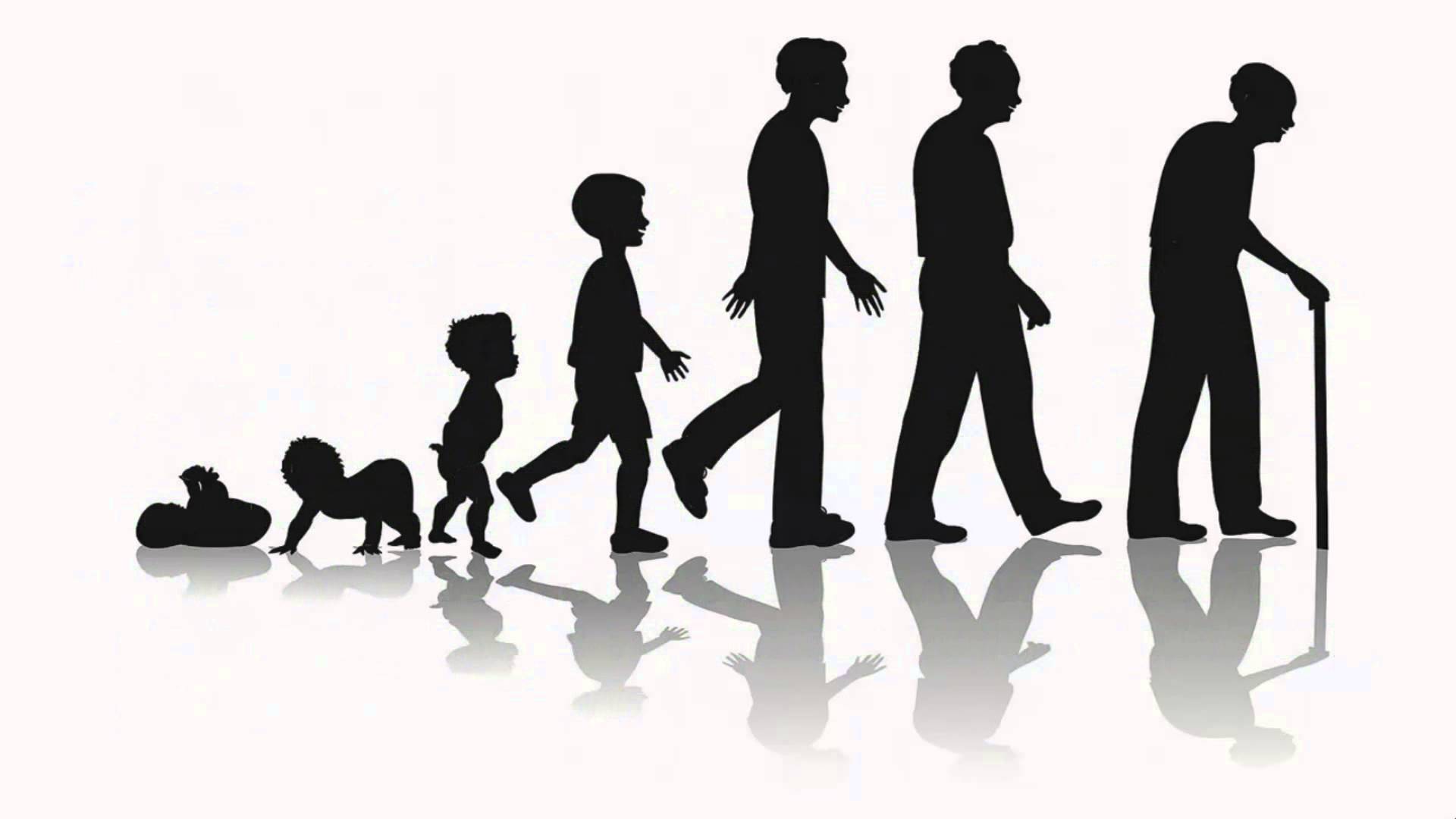Interpreting Affection in Dreams
The Role of Emotions in Dreams
Affection in dreams can have a multitude of meanings, depending on the emotions and circumstances surrounding it. To interpret affection in dreams, one must first consider their own emotional state and the specific details of the dream.
Emotions play a crucial role in dreams as they reflect our subconscious thoughts and feelings. The intensity and type of emotion experienced during a dream can provide insight into our waking lives. In the context of affection, emotions such as love, warmth, and tenderness can represent positive experiences or relationships, while emotions like sadness, rejection, or longing may signify unfulfilled desires or unresolved conflicts.
There are several key elements to consider when interpreting affection in dreams:
- The type of affection experienced during the dream (e.g. romantic, platonic, familial). This can provide insight into the types of relationships or connections you value in your waking life.
- The intensity and quality of the emotion felt during the dream (e.g. overwhelming joy vs. gentle comfort). This can reflect the emotional state you are currently experiencing in your waking life.
- The context in which affection is experienced during the dream (e.g. a happy memory, a current relationship, or a fantasy scenario). This can provide insight into your desires and values.
Some common interpretations of affection in dreams include:
Positive Affection:
- Loving relationships or connections (e.g. romantic, platonic, familial). This can represent a desire for connection, love, and acceptance in your waking life.
- Personal growth and self-love (e.g. feeling proud of oneself, confident, or accomplished). This can signify a need to nurture and develop self-compassion and self-worth.
Negative Affection:
- Unrequited love or rejection (e.g. feeling unloved, unwanted, or insecure). This can represent unresolved feelings of inadequacy, low self-esteem, or fear of being rejected.
- Sadness and loss (e.g. grief, nostalgia, or longing for a lost connection). This can signify a need to process and release emotions related to past losses or unfulfilled relationships.
Ultimately, the interpretation of affection in dreams depends on your individual experiences, emotions, and circumstances. By considering the details of your dream and reflecting on your emotional state, you can gain insight into your subconscious thoughts and desires, and uncover hidden patterns and motivations that influence your waking life.
Emotions play a crucial role in dreams, with affection being one of the most common emotions experienced during REM sleep
Affection plays a significant role in dreams, and understanding its meaning can be complex. The interpretation of affection in dreams often depends on the context of the dream as well as the emotions experienced during the dream.
Emotions in dreams are closely linked to our subconscious mind, and affection is one of the most common positive emotions we experience during REM sleep. When affection appears in a dream, it can symbolize different things depending on the situation presented in the dream. For instance, dreaming about receiving affection from someone you care about may represent feelings of security and comfort.
However, when interpreting affection dreams, context is crucial. The nature of the affection expressed in the dream and the actions taking place within the dream can greatly influence its meaning. A dream where you’re giving or showing affection to others might signify a need for emotional connection in your waking life.
Sometimes, affection in dreams can be associated with unresolved issues from past experiences. Unconsciously, we may still hold feelings of love, sadness, or regret that were not fully addressed. In this case, the dream is an attempt by our subconscious to process these emotions and find closure.
Affection dreams can also serve as a reflection of self-love. They might symbolize a deepening connection with oneself or an increased sense of self-worth. Dreams where you’re receiving affection from others could be seen as manifestations of your own positive attributes, highlighting what makes you lovable and appreciated.
Another perspective on interpreting affection dreams involves considering the emotions experienced during the dream. The intensity of the emotion can reveal more about the subconscious mind than the specific action or event within the dream. For example, a dream filled with an overwhelming sense of joy and happiness upon receiving affection could indicate a desire for love and acceptance in your waking life.
In conclusion, interpreting dreams involving affection requires attention to both the context and emotions presented in the dream. It’s about understanding how these elements reflect our inner world, desires, and unresolved issues. By paying close attention to what we feel during the dream and how it makes us feel afterwards, we can uncover deeper meanings behind seemingly simple or complex dreams.
Here are some common examples of affection in dreams:
- Dreaming about receiving affection from someone you care about: Feeling secure and comfortable
- Dreaming about giving affection to others: A need for emotional connection
- Dreaming about showing affection in a romantic context: Desire or attraction towards someone
- Dreaming about being shown affection by children or pets: Feeling of innocence, playfulness, and joy
- Dreaming about receiving affection from strangers or people you don’t know well: Feelings of being accepted or appreciated for who you are
- Dreaming about showing affection to someone in a non-romantic context: Desire for friendship, companionship, or connection
Research suggests that our brains process and consolidate emotional experiences during sleep, making it essential to understand the emotions present in our dreams
Affectionate dreams can be a reflection of an individual’s emotional state, and understanding their significance is crucial to deciphering their meaning. When interpreting affection in dreams, it’s essential to consider various aspects, including the type of affection expressed, the context in which it appears, and any accompanying emotions.
One possible interpretation of affectionate dreams is that they symbolize a deep emotional connection with oneself or others. This can manifest as feelings of warmth, comfort, or protection towards oneself or significant others, suggesting a need for self-care, nurturing, and validation.
In some cases, affection in dreams may indicate a repressed or unexpressed desire for intimacy or closeness. This could be due to unresolved emotional issues, past traumas, or fear of vulnerability, causing the individual to subconsciously express their desires through dream scenarios that showcase affectionate interactions.
Furthermore, affectionate dreams can serve as a reflection of an individual’s relationship with themselves and others. They may symbolize a desire for connection, validation, or love from significant people in one’s life. This could be due to feelings of loneliness, inadequacy, or insecurity, leading the individual to seek solace in fantasies of affectionate interactions.
Another interpretation is that affectionate dreams are a manifestation of the subconscious mind processing and consolidating emotional experiences during sleep. Research suggests that our brains process emotions during the REM stage, which can lead to vivid and intense dream scenarios involving affectionate interactions.
The context in which affection appears in dreams can also provide valuable insight into its meaning. For instance, if an individual is experiencing stress or anxiety, their dreams may feature a desire for physical touch or intimacy as a way of coping with these emotions. On the other hand, if they are struggling with emotional regulation, their dreams may showcase excessive or controlling behavior in affectionate interactions.
It’s also worth noting that cultural and personal background can influence how affection is perceived and expressed in dreams. Different cultures have varying norms around physical touch and intimacy, which can impact an individual’s interpretation of affectionate dreams. Additionally, personal experiences and emotional histories can shape the way individuals respond to affection in their dreams.
Ultimately, interpreting affection in dreams requires a nuanced understanding of the individual’s emotional landscape, cultural context, and personal experiences. By examining these factors, it’s possible to gain insight into the underlying emotions driving the dream scenario and uncover new aspects of oneself or relationships.
In conclusion, affectionate dreams can offer valuable insights into an individual’s emotional state, desires, and fears. By exploring various interpretations and considering contextual factors, individuals can unlock a deeper understanding of their subconscious mind and foster greater self-awareness in their waking lives.
Types of Affection in Dreams
Personal Affection and Its Meanings
Dreams are a way for our subconscious to communicate with our conscious mind, and one of the most universal themes that appear in dreams is affection. Whether it’s romantic love, familial affection, or platonic affection, our dreams often reveal deep-seated emotions and desires related to relationships and connection.
There are several types of affection that can appear in dreams, each with its own unique meaning and significance. Here are some common examples:
Romantic Affection: Dreams about romantic affection often reflect unresolved issues or unfulfilled longings in our waking lives. They may indicate a desire for intimacy, connection, or emotional validation from a partner or significant other.
For example, if you dream about kissing someone passionately, it could suggest that you’re craving more emotional connection and passion in your current relationship. Alternatively, it may represent a longing for a romantic experience or a deep-seated fear of being alone.
Familial Affection: Dreams about familial affection often relate to feelings of security, comfort, and belonging. They can also symbolize our need for nurturing, protection, and unconditional love from family members.
If you dream about hugging a parent or child, it may indicate that you’re feeling emotionally vulnerable or insecure in your waking life. On the other hand, if the hug feels warm and comforting, it could represent a sense of gratitude for supportive relationships in your life.
Platonic Affection: Dreams about platonic affection often involve friendships, social connections, and community bonds. They can also symbolize our desire for acceptance, understanding, and companionship from others.
If you dream about hugging a friend or confidant, it may suggest that you’re seeking validation and support in your waking life. Alternatively, it could represent a desire to strengthen existing friendships or make new connections.
Unconditional Affection: Dreams about unconditional affection often relate to our deep-seated need for love, acceptance, and approval from others. They can also symbolize our desire for self-love and self-acceptance.
If you dream about receiving unconditional love or affection, it may indicate that you’re feeling inadequate or unworthy in your waking life. However, if the love feels warm and genuine, it could represent a growing sense of self-confidence and self-worth.
Ultimately, the meaning of affection in dreams depends on the specific context, emotions, and sensations experienced during the dream. By exploring your personal associations and memories related to affection, you can gain a deeper understanding of what these dreams may be trying to communicate about your inner world.
So, take some time to reflect on your own experiences with affection in waking life and see if there are any common themes or emotions that appear across different relationships. By exploring this emotional terrain, you can better understand the symbolic language of your dreams and tap into the wisdom of your subconscious mind.
Personal affection refers to feelings of love, warmth, or tenderness towards oneself or others
In dreams, affection can manifest in various forms and convey distinct meanings depending on the context and emotions involved. Personal affection refers to feelings of love, warmth, or tenderness towards oneself or others. It’s essential to differentiate between personal and impersonal affections in dreams.
Personal affection in dreams may represent a deep sense of self-love and acceptance, highlighting one’s inner strength, resilience, and ability to nurture themselves through challenging situations. On the other hand, feeling affection for someone else in a dream can signify love, care, or admiration towards that individual in waking life.
Types of affection in dreams often overlap with other emotions and themes. For example, feeling intense affection for an unknown person might represent unexpressed feelings or desires in one’s waking life. This type of affection may symbolize a yearning for connection, intimacy, or emotional validation from others.
In contrast, impersonal affections can refer to universal concepts such as compassion, empathy, or kindness towards all living beings without personal attachment. These dreams often point to an expansion of one’s emotional range and capacity for unconditional love and acceptance.
Additionally, affection in dreams can be associated with various aspects of the self, such as nurturing, caregiving, or maternal instincts. A dream about feeling strong affection for a child might symbolize inner growth and development of one’s own creative potential, while also highlighting the importance of emotional nourishment and support.
It is worth noting that dreams can be highly personal and subjective, so deciphering their meaning requires examining both the individual’s emotional state at the time of sleep and the specific content of the dream. The context in which affection appears in a dream plays a crucial role in determining its possible interpretation.
Affectionate emotions experienced in dreams are often closely tied to real-life events, desires, and relationships. Reflecting on these connections can provide valuable insight into one’s waking life and may help address any unresolved emotional or psychological conflicts.
Overall, exploring the diverse types of affection in dreams allows for a deeper understanding of an individual’s inner world and their capacity for love, care, and compassion. By recognizing and interpreting these themes within dream content, individuals can gain greater insight into their waking lives and foster more meaningful connections with themselves and others.
When analyzing affectionate emotions in dreams, consider the following questions: What type of affection am I experiencing in this dream? Is it personal or impersonal? How does this relate to my waking life and relationships?
By asking these questions and reflecting on the specifics of your dream content, you can tap into the underlying emotional themes and gain a more nuanced understanding of what your dreams are trying to convey.
According to Dr. Calvin Hall’s content analysis of dream content, personal affection is often linked to positive emotions and a sense of wellbeing
Dreams about affection can have a range of meanings depending on their content and the emotions they evoke. According to Dr. Calvin Hall’s content analysis of dream content, personal affection is often linked to positive emotions and a sense of wellbeing.
There are several types of affection that may appear in dreams, each with its own unique connotations and emotional resonance. Some common types of affection in dreams include romantic love, familial love, platonic friendship, and even self-affection.
Romantic love dreams often feature intimate and sensual imagery, such as physical touch, kissing, or sex. These dreams can indicate a strong desire for connection, intimacy, and romance in waking life. They may also suggest that the dreamer is seeking validation, approval, or affection from others.
Familial love dreams typically involve family members, often in a context of warmth, support, and protection. These dreams can represent a sense of security, belonging, and unconditional love, which is essential for emotional wellbeing. They may also indicate unresolved issues or unexpressed feelings within the dreamer’s family dynamics.
Platonic friendship dreams usually involve close friends or acquaintances in social situations that are relaxed and enjoyable. These dreams can symbolize a desire for companionship, connection, and shared experiences with others. They may also suggest that the dreamer is seeking guidance, support, or validation from their friends.
Sometimes dreams about affection involve self-affection, which can manifest as self-soothing behaviors like hugging oneself, stroking one’s hair, or giving oneself a reassuring touch. These dreams often indicate a need for comfort, reassurance, and self-care in the dreamer’s life.
It is also worth noting that affection dreams can sometimes have negative connotations, such as feelings of inadequacy, guilt, or shame. These emotions may arise from unresolved conflicts, past traumas, or unfulfilled desires, which the dreamer needs to confront and resolve in waking life.
In summary, dreams about affection offer a unique window into the dreamer’s emotional landscape, revealing their deepest longings, fears, and desires. By exploring the various types of affection that appear in dreams, individuals can gain valuable insights into their personal growth, relationships, and overall wellbeing.
Cultural and Personal Significance
The Influence of Cultural Context on Affection in Dreams
Cultural and personal significance play a crucial role in understanding the meaning behind affection dreams. The way we express and experience affection varies across cultures, shaping our perception of love, intimacy, and relationships.
In many Western societies, affection is often associated with romantic love and physical touch. Dreams about affection may reflect unresolved issues or unexpressed emotions related to past relationships, attachment styles, or a desire for deepening intimacy in current relationships.
However, in other cultures, affection can be more reserved or expressed differently. For example, some Asian cultures value respect and hierarchy over emotional expression, leading to dreams about affection being less explicit or even indirect.
Personal experiences also influence the meaning of affection dreams. Traumatic events, such as childhood abuse or neglect, can shape our attachment styles and perception of affection in dreams. Dreams may serve as a coping mechanism or reflection of unresolved emotions related to these events.
Furthermore, cultural context affects how we experience and express affection in waking life. For instance, some cultures place great importance on family ties and intergenerational relationships, while others value individualism and personal freedom. These differences are reflected in dreams about affection, where themes of family, loyalty, or independence may emerge.
Additionally, the influence of cultural context can be seen in the way affection is communicated through nonverbal cues, such as touch, eye contact, or proximity. In some cultures, physical touch is a common expression of affection, while others view it as intrusive or taboo. Dreams about affection may reflect an individual’s comfort level with physical closeness and intimacy.
Cross-cultural differences in emotional expression also affect the way we experience and interpret affection in dreams. For example, some cultures emphasize group harmony over individual feelings, leading to dreams that prioritize collective well-being over personal emotions. In contrast, Western societies often value individual autonomy and self-expression, resulting in dreams that focus on personal relationships and emotional fulfillment.
Ultimately, the influence of cultural context on affection in dreams is complex and multifaceted. By considering these factors, individuals can gain a deeper understanding of their own experiences and emotions, as well as those of others from diverse cultural backgrounds.
The cultural context in which we live can shape the way we experience and interpret affection in our dreams
The concept of affection in dreams can hold significant cultural and personal significance. The way we experience and interpret affection in our dreams is often shaped by our cultural background, upbringing, and personal experiences.
Our cultural context plays a crucial role in shaping our understanding of affection. For instance, some cultures place great emphasis on romantic love and physical affection, while others prioritize emotional support and spiritual connection. This can influence the way we perceive and interpret affection in our dreams, with certain symbols or themes taking on specific meanings.
Cultures that value physical touch and intimate contact may be more likely to dream about romantic relationships, sensual experiences, or overt displays of affection. In contrast, cultures that emphasize emotional support and spiritual connection may be more inclined to dream about nurturing environments, comforting interactions, or a deep sense of connection with others.
Personal experiences also play a significant role in shaping our interpretation of affection in dreams. Trauma, abuse, or neglect can lead to complex and often painful associations with physical touch or intimacy. In these cases, dreams about affection may manifest as avoidant or fearful behaviors, such as avoiding eye contact or pushing others away.
On the other hand, positive experiences of affection can foster a sense of security, safety, and belongingness. Dreams about affection in these contexts may reflect a deep-seated desire for connection, nurturing, or emotional support.
The context of our dreams is also influenced by our cultural background. For example:
- Cultures that value family ties and social harmony (e.g., East Asian cultures) may dream about familial relationships or harmonious interactions.
- Cultures that emphasize individualism and personal freedom (e.g., Western cultures) may dream about personal autonomy, independence, or self-expression.
- Cultures with a strong spiritual tradition (e.g., many Indigenous cultures) may dream about ancestral connections, spiritual guides, or otherworldly experiences.
In conclusion, the cultural context in which we live and our personal experiences shape the way we experience and interpret affection in our dreams. By understanding these factors, we can gain a deeper appreciation for the symbolic language of our dreams and tap into their rich emotional and spiritual significance.
A study conducted by researchers at Harvard University found that individuals from collectivist cultures tend to report more altruistic and interdependent experiences in their dreams, highlighting the importance of considering cultural background when interpreting dreams
Cultural and personal significance plays a crucial role in understanding dreams, particularly when it comes to interpreting their meaning.
One interesting finding from a study conducted by researchers at Harvard University suggests that individuals from collectivist cultures tend to report more altruistic and interdependent experiences in their dreams.
This highlights the importance of considering cultural background when interpreting dreams. In collectivist societies, relationships and community ties are often prioritized over individual needs, which can manifest differently in dream content.
For example:
- In collectivist cultures, dreams about family or community may represent a deep-seated sense of connection and belonging, whereas in individualist cultures, such dreams might symbolize a desire for independence and self-reliance.
Personal significance also plays a vital role in dream interpretation. Our personal experiences, emotions, and concerns can influence the symbolism and themes present in our dreams.
For instance:
- A person who has recently experienced a significant loss may have dreams that reflect their grief or anxiety. In this context, symbols like darkness or emptiness might represent feelings of sadness or voidness.
Considering personal significance involves reflecting on one’s own life, emotions, and experiences to understand how they relate to the dream content.
Moreover, research suggests that personal symbolism can vary across cultures and individuals. For example:
- A snake may represent danger or temptation in Western cultures, but it could symbolize renewal or transformation in many indigenous cultures.
Given the unique intersection of cultural background and personal experiences, dream interpretation requires a nuanced approach that acknowledges these complexities. By exploring both cultural and personal significance, individuals can gain deeper insights into their dreams and better understand themselves.
- Bankruptcy Dream Meaning: What Does Being Bankrupt Mean In Your Dream? - September 16, 2024
- Banking Dream Meaning: What Does Banking Mean In Your Dream? - September 15, 2024
- Bullying Dream Meaning: What Does Bullying Represent In Your Dream? - September 15, 2024







